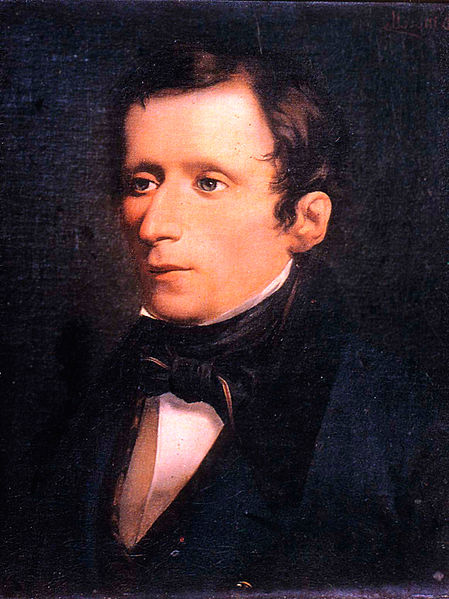Morelli, Giacomo Leopardi, 1845
As a poet my spirit has run the same course as the human spirit generally. At the beginning, Fancy was my strength: my poems were full of images, and I read poetry to feed my own imagination. I was already intensely aware of the life of feeling but didn’t know how to express it. I hadn’t reflected enough on things, of philosophy I had only the faintest grasp, and I lived constantly with the illusion we all create, that the world and life will always make an exception for us. I’ve always experienced misfortune, but back then it seemed especially intense, and it devastated me because it seemed (not to my rational faculty but to my very active imagination) that misfortune denied me the happiness others believed they possessed. My condition was in every way that of the ancients.
It’s quite true that even then, when I felt so pressed by misfortune and trouble, I was capable of certain effects in my poetry. The complete change in me, my passage from ancient to modern, happened within about a year, in 1819, when I lost the use of my sight and couldn’t pass the time reading, I felt my unhappiness darkening terribly, and I began to give up hope, to reflect deeply on things (in one year I filled twice the space in these daybooks as I had in a year and a half, and my thoughts were all centered on our nature, unlike previous entries that were nearly all about literature), to become a professional philosopher (instead of the poet I once was), to feel the world’s inevitable unhappiness instead of just acknowledging it, and this also because of a certain physical torpor that made me less like the ancients and more like men of my time. My imagination then became much feebler, and although my faculty of invention increased enormously and finally began to function, it took form in prose or sentimental poetry. And when I did try to versify, images came only with enormous effort, my imagination was almost dried up (even apart from poetry; I mean, in contemplating Nature’s beauty, etc., I was cold as stone), even though my lines gushed with feeling. So one could say that in the strictest terms only the ancients were poets, and now the true poets are children, or the very young, and moderns who pass themselves off as poets are in fact philosophers.
Certain ideas, certain images of things, surpassingly vague, fantastical, chimerical, impossible, in poetry or in our imaginings—they bring peak pleasures, because they bring back our oldest memories, memories from childhood, when such ideas and images and beliefs were ordinary, commonplace. And the poets who most possess these (supremely poetical) visions are the ones we love most. Examine your own most poetical feelings and imaginings, those that most awe you, that take you out of yourself and the real world, and you will find that they and the pleasures they bring (at least after childhood) are mainly or wholly constructed of remembrances.
Giacomo Leopardi
Giacomo Leopardi was born on this date in 1798.
It’s quite true that even then, when I felt so pressed by misfortune and trouble, I was capable of certain effects in my poetry. The complete change in me, my passage from ancient to modern, happened within about a year, in 1819, when I lost the use of my sight and couldn’t pass the time reading, I felt my unhappiness darkening terribly, and I began to give up hope, to reflect deeply on things (in one year I filled twice the space in these daybooks as I had in a year and a half, and my thoughts were all centered on our nature, unlike previous entries that were nearly all about literature), to become a professional philosopher (instead of the poet I once was), to feel the world’s inevitable unhappiness instead of just acknowledging it, and this also because of a certain physical torpor that made me less like the ancients and more like men of my time. My imagination then became much feebler, and although my faculty of invention increased enormously and finally began to function, it took form in prose or sentimental poetry. And when I did try to versify, images came only with enormous effort, my imagination was almost dried up (even apart from poetry; I mean, in contemplating Nature’s beauty, etc., I was cold as stone), even though my lines gushed with feeling. So one could say that in the strictest terms only the ancients were poets, and now the true poets are children, or the very young, and moderns who pass themselves off as poets are in fact philosophers.
Certain ideas, certain images of things, surpassingly vague, fantastical, chimerical, impossible, in poetry or in our imaginings—they bring peak pleasures, because they bring back our oldest memories, memories from childhood, when such ideas and images and beliefs were ordinary, commonplace. And the poets who most possess these (supremely poetical) visions are the ones we love most. Examine your own most poetical feelings and imaginings, those that most awe you, that take you out of yourself and the real world, and you will find that they and the pleasures they bring (at least after childhood) are mainly or wholly constructed of remembrances.
Giacomo Leopardi

No comments:
Post a Comment